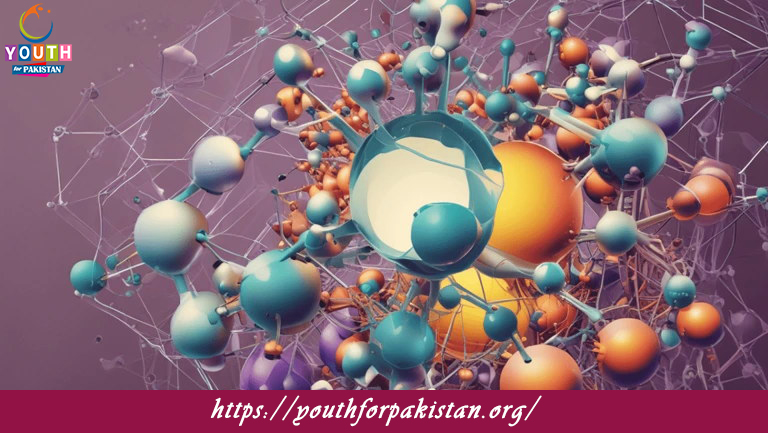Welcome to the Alkyl Halides MDCAT MCQs with Answers. In this post, we have shared Alkyl Halides Multiple Choice Questions and Answers for PMC MDCAT 2024. Each question in MDCAT Chemistry offers a chance to enhance your knowledge regarding Alkyl Halides MCQs in this MDCAT Online Test.
Which of the following is an example of a primary alkyl halide?
a) CH₃CH₂Cl
b) (CH₃)₂CHCl
c) (CH₃)₃CCl
d) CH₃Cl
What type of reaction does CH₃CH₂Br typically undergo?
a) Addition
b) Substitution
c) Elimination
d) Polymerization
The bond between carbon and halogen in alkyl halides is:
a) Nonpolar covalent
b) Polar covalent
c) Ionic
d) Metallic
Which of the following alkyl halides is the least reactive towards nucleophilic substitution?
a) CH₃Cl
b) CH₃Br
c) CH₃I
d) CCl₄
What is the product of the reaction between an alkyl halide and KCN?
a) Alkyl alcohol
b) Alkyl amine
c) Alkyl cyanide
d) Alkene
Which of the following alkyl halides will have the highest boiling point?
a) CH₃Cl
b) CH₃Br
c) CH₃I
d) C₂H₅Cl
Which factor most significantly influences the reactivity of alkyl halides in nucleophilic substitution?
a) Bond strength between carbon and halogen
b) Molecular size
c) Solubility in water
d) Color
Which halogen is most commonly used in the preparation of alkyl halides?
a) Fluorine
b) Chlorine
c) Bromine
d) Iodine
Which reaction mechanism do tertiary alkyl halides most likely follow during nucleophilic substitution?
a) SN1
b) SN2
c) E1
d) E2
The carbon-halogen bond strength is the weakest in:
a) CH₃Cl
b) CH₃Br
c) CH₃I
d) CH₃F
Which of the following is a secondary alkyl halide?
a) CH₃CH₂Cl
b) (CH₃)₂CHCl
c) (CH₃)₃CCl
d) CH₃Cl
What is the major product when CH₃CH₂Br reacts with aqueous NaOH?
a) Ethene
b) Ethanol
c) Ethyne
d) Ethyl chloride
Which alkyl halide is least reactive towards nucleophilic substitution?
a) CH₃Cl
b) CH₃Br
c) CH₃I
d) CH₃F
The reaction of an alkyl halide with a base results in:
a) An alcohol
b) An alkene
c) An ether
d) A carboxylic acid
Which of the following is a nucleophile that can react with alkyl halides?
a) H₂O
b) OH⁻
c) H⁺
d) CO₂
In the dehydrohalogenation of alkyl halides, which of the following is the base commonly used?
a) NaOH
b) KOH
c) H₂SO₄
d) NH₃
What is the product when CH₃CH₂Cl is treated with KOH in ethanol?
a) Ethanol
b) Ethene
c) Acetylene
d) Ethyl alcohol
Which of the following alkyl halides will undergo the fastest SN2 reaction?
a) CH₃Cl
b) (CH₃)₂CHCl
c) (CH₃)₃CCl
d) CH₃CH₂Cl
In a nucleophilic substitution reaction, which of the following is a better leaving group?
a) F⁻
b) Cl⁻
c) Br⁻
d) I⁻
Which of the following alkyl halides is most likely to undergo elimination?
a) (CH₃)₃CCl
b) CH₃Cl
c) CH₃CH₂Cl
d) CH₃CH₂CH₂Cl
What is the major product when CH₃CH₂CH₂Cl reacts with aqueous KOH?
a) Propanol
b) Propene
c) Propyne
d) Propyl chloride
Which halogen is the best leaving group in a nucleophilic substitution reaction?
a) Fluorine
b) Chlorine
c) Bromine
d) Iodine
In the reaction of CH₃CH₂Cl with NaI in acetone, the role of NaI is as a:
a) Nucleophile
b) Electrophile
c) Catalyst
d) Solvent
Which type of alkyl halide is most reactive in an SN1 reaction?
a) Primary
b) Secondary
c) Tertiary
d) Allylic
Which of the following alkyl halides undergoes elimination reactions most readily?
a) CH₃Cl
b) (CH₃)₃CCl
c) CH₃CH₂Cl
d) CH₃CH₂CH₂Cl
Which reagent is used for the dehalogenation of alkyl halides?
a) Zn in acetic acid
b) NaOH
c) H₂SO₄
d) HCl
Which of the following alkyl halides will react fastest with AgNO₃ in ethanol?
a) CH₃Cl
b) CH₃Br
c) CH₃I
d) CH₃F
In the formation of Grignard reagent, the alkyl halide is reacted with:
a) Magnesium
b) Sodium
c) Potassium
d) Zinc
What is the product when CH₃CH₂Cl reacts with Mg in dry ether?
a) CH₃CH₂MgCl
b) CH₃CH₂OH
c) CH₃CH₂MgBr
d) CH₃CH₃
Which of the following alkyl halides is commonly used in the synthesis of ethers?
a) CH₃Cl
b) CH₃I
c) CH₃Br
d) CH₃CH₂Cl
The reaction of an alkyl halide with ammonia produces:
a) An amine
b) An alcohol
c) An ether
d) A carboxylic acid
Which of the following is an allylic halide?
a) CH₂=CHCH₂Cl
b) CH₃CH₂Cl
c) (CH₃)₂CHCl
d) CH₃Cl
What type of halide is (CH₃)₂C=CHCl?
a) Vinylic halide
b) Allylic halide
c) Benzylic halide
d) Aryl halide
Which of the following is true about the reactivity of alkyl halides?
a) Alkyl fluorides are most reactive
b) Alkyl iodides are least reactive
c) Alkyl bromides are more reactive than alkyl chlorides
d) Alkyl chlorides are more reactive than alkyl bromides
What is the major product when CH₃CH₂Br reacts with NaOH in ethanol?
a) Ethanol
b) Ethene
c) Propene
d) Butene
Which of the following reactions is used to prepare alkyl halides from alcohols?
a) Lucas reaction
b) Aldol condensation
c) Friedel-Crafts reaction
d) Wurtz reaction
Which alkyl halide is used as a starting material for the Wurtz reaction?
a) CH₃CH₂Cl
b) CH₃CH₂I
c) CH₃CH₂Br
d) All of the above
What is the product of the reaction between CH₃CH₂Cl and NaCN?
a) Ethyl alcohol
b) Propanenitrile
c) Acetonitrile
d) Methyl chloride
Which of the following is the best solvent for an SN2 reaction involving an alkyl halide?
a) Water
b) Ethanol
c) DMSO
d) Acetone
What type of product is formed when CH₃CH₂Br reacts with NaOH in ethanol at high temperature?
a) Alkene
b) Alcohol
c) Ether
d) Ketone
If you are interested to enhance your knowledge regarding Physics, Chemistry, Computer, and Biology please click on the link of each category, you will be redirected to dedicated website for each category.








